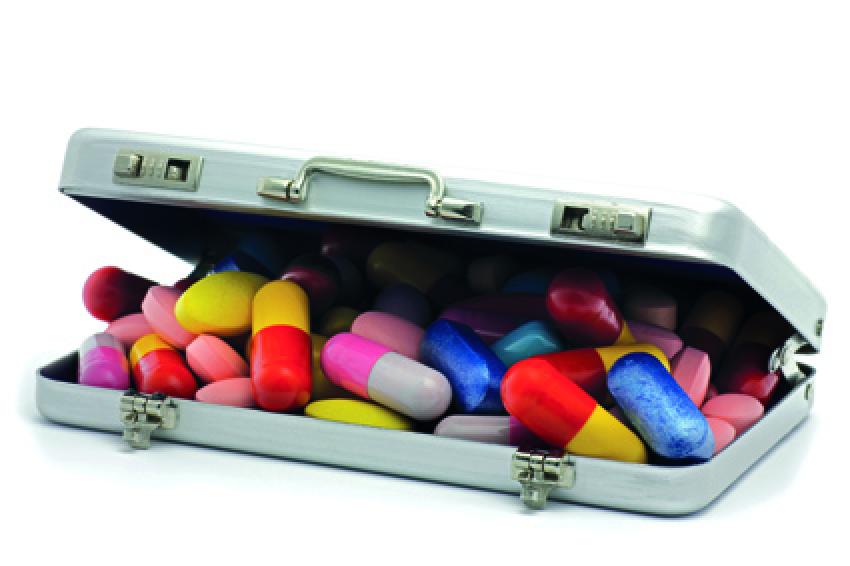India’s Insights into Serialization
Tracking Pharmaceuticals from Creation to Consumer
Securing Medication - India is among the first countries to require pharmaceutical companies to serialize their products. PharmaSecure works with Indian manufacturers to mark medicines with identification codes to meet these regulations. Now that EU member nations are beginning to require tracking of medicines, European pharmaceutical manufacturers can learn from lessons on the ground in India.
Serialization and Authentication Technology
An era of pharmaceutical serialization has begun. Around the world, countries are beginning to mandate the barcoding of pharmaceuticals in order to increase supply chain security and block entry points for counterfeit drugs. India is among the first countries to mandate such regulations and, in the coming year, every individual drug package for export produced in the country will include a unique identification number that is traceable along the supply chain.
Not only will the identification codes protect brands and consumers, but also they will offer precise distribution intelligence that will allow for improved medical distribution of medicines. As other countries implement similar regulations, India's example provides insight into the challenges and benefits of this new era of serialization.
India 2013: Regulations Ahead of Europe in Implementation
In January 2011, India's Directorate General of Foreign Trade (DGFT) issued Public Notice No. 21, mandating unique numbers and bar codes for tertiary, secondary and primary packaging for all pharmaceuticals exported from the country. The three-phase implementation began in October 2011 with bar codes required for all tertiary packaging, followed by July 2012 for secondary packaging and January 2013 for primary packaging. Once fully implemented, the regulations will result in the serialization of over $10 billion worth of low-cost generic drugs exported from India annually.
The DGFT Mandate has proved an extremely important milestone for the pharmaceutical industry worldwide. It is one of the first of its kind in terms of pharmaceutical regulation and it is the first time a large number of packages, including even inexpensive products, will be serialized in a cost-effective manner. Companies in India are quickly putting serialization systems into place to meet the requirements.
In May 2010, the Council of the European Union adopted the Falsified Medicines Directive of which, among other things, would require drug manufacturers to print traceable serial numbers on all medicine packages. The Council gave all EU countries 18 months to legislate the Directive into national law; in turn these laws will give drug manufacturers three years to implement serialization. Meeting the robust capacity and scale demanded by the Directive in the coming four years will be no small feat. It requires immediate strategic planning on behalf of pharmaceutical companies in order to reach the target deadlines.
PharmaSecure experience
PharmaSecure has worked with Indian pharmaceutical companies since 2010 to serialize and track their products by means of mobile authentication. With the DGFT mandate in place PharmaSecure has entered the export market and are providing serialization solutions for top manufacturers in India. By issuing unique identification codes to billions of export drugs, the low-cost protection of life saving drugs destined to markets across the developing world. Distributors along the supply chain now have the capability to trace their products and consumers the ability to verify the authenticity of their medicine.
The basic idea behind PharmaSecure's solution is simple: print a unique, random, alphanumeric code onto tertiary, secondary and primary packages. This system enables random generation of trillions of unique codes, end-to-end encrypted transmission of the codes to the site of manufacturing and product verification.
Looked at more in depth, our platform consists of the following modules that provide scalability, security and consumer usability:
- Serialization and code management generates unique flexible, attribute codes together with compliance data.
- Line management communicates with packaging line hardware and streams codes to printers.
- Global verification server enables authentication for serial codes anywhere in the world. Codes can be verified through multiple channels such as SMS, web, mobile application and call center.
- Data analytics enables the creation of customizable data based on authentication instances providing key business intelligence data
- Two-way consumer communication upon authentication allows consumers to access valuable healthcare services.
Lessons for European manufacturers
The recent McKinsey's report on India Pharma 2020 forecasts the India pharmaceutical market to be worth $55 billion by 2020. India ranks globally tenth in value and third in volume with 70 to 80 % of the India pharmaceutical market low-cost generic drugs. As emerging markets continue to grow as major players in the industry, countries like India are leading not only in growth but in supply chain security.
India -even with its logistical challenges, narrow profit margins, and tight regulatory time constraints-is proving that mass serialization is more than possible, it's a vital step in global health management. As Indian pharmaceutical manufactures incorporate serialization systems like PharmaSecure's, they enable consumers around the world to authenticate that their medicine is genuine and provide traceability for handlers along the supply chain. If India's complex, unorganized market can successfully implement serialization at high volumes, European manufactures can tackle the forthcoming challenge of serialization.
Contact
Fenton
1000 Vermont Ave., NW
Washington DC 20005
+1 202 7897750





